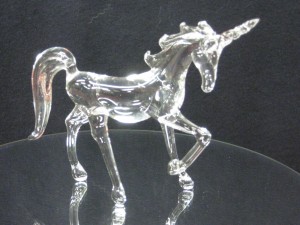 Oscar Wilde, the Irish playwright who became the darling of British high society, is probably the best-known and most-quoted satirist of the late 19th century. Born in Dublin, Ireland in 1864, Wilde became a well-known lecturer, essayist, and playwright who enjoyed near-universal popularity until the shocking trial that ended his literary career and, not long after, his life.
Oscar Wilde, the Irish playwright who became the darling of British high society, is probably the best-known and most-quoted satirist of the late 19th century. Born in Dublin, Ireland in 1864, Wilde became a well-known lecturer, essayist, and playwright who enjoyed near-universal popularity until the shocking trial that ended his literary career and, not long after, his life.
Wilde’s parents encouraged his intellectual pursuits. His success at Dublin’s Trinity College ended in his receiving a scholarship to Oxford University in England, where he won prizes for his academic achievements and his writings. He graduated with a degree in classics. Wilde was a strong proponent of the intellectual movement known as aestheticism, which emphasized the pursuit of beauty more than social-political themes for the arts. His lecture tour of the United States introduced him to many American artists and intellectuals, including the poet Walt Whitman. He continued lecturing upon his return to England in 1882.
Wilde began his professional writing career as the editor of the magazine Lady’s World. In 1888, he published The Happy Prince and Other Stories, a collection for children. Three years later, his only novel, The Picture of Dorian Gray, about a man whose enchanted portrait ages so that he can continue living a life of sin, was published in 1891. Dorian Gray was viewed as scandalous and immoral, a hint of troubles to come.
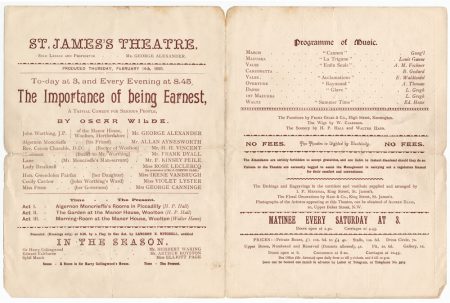 The next year, Wilde’s first play, Lady Windermere’s Fan, made its debut to great acclaim. Playwriting became Wilde’s preferred literary style. Lady Windermere’s Fan was followed in short order by A Woman of No Importance in 1893 and both An Ideal Husband and his most famous play, The Importance of Being Earnest in 1895. Each of these works skewered the pretensions of British high society through clever wordplay and Wilde’s satirical wit.
The next year, Wilde’s first play, Lady Windermere’s Fan, made its debut to great acclaim. Playwriting became Wilde’s preferred literary style. Lady Windermere’s Fan was followed in short order by A Woman of No Importance in 1893 and both An Ideal Husband and his most famous play, The Importance of Being Earnest in 1895. Each of these works skewered the pretensions of British high society through clever wordplay and Wilde’s satirical wit.

Irene Vanbrugh as Gwendolen Fairfax and George Alexander as Jack Worthing in the 1895 production of ‘The Importance of Being Earnest’, from The Sketch magazine, London, March 1895. NAL 131655
Wilde’s gift for the cutting remark and his razor-sharp acuity about human folly would have made him a natural at Twitter, had social media existed at the time. As it was, he could be counted on to provide a smart remark about just about any topic:
“There is always more books than brains in an aristocracy.” —Vera, or The Nihilists
“The English mind is always in a rage. The intellect of the race is wasted in the sordid and stupid quarrels of second-rate politicians or third-rate theologians.” —The Critic As Artist
“One is impressed in America, but not favourably impressed, by the inordinate size of everything. The country seems to try to bully one into a belief in its power by its impressive bigness.” —Impressions of America
“If one could only teach the English how to talk, and the Irish how to listen, society here would be quite civilised.” —An Ideal Husband
“The Rhine is of course tedious, the vineyards are formal and dull, and as far as I can judge, the inhabitants of Germany are American.” —Letter to Robert Ross
“It is the Philistine who seeks to estimate a personality by the vulgar test of production.” —Pen, Pencil, and Poison
“There is no sin except stupidity.” —The Critic as Artist
The year 1895 proved both the pinnacle of Wilde’s success as an artist and the nadir of his personal life. Wilde was married to a woman named Constance Lloyd, and although he and Constance had two children together, it was no secret that Wilde’s true affections lay elsewhere. He had for years enjoyed a close relationship with Lord Alfred “Bosie” Douglas, the son of the powerful Marquess of Queensbury. When the Marquess found out about the relationship, he publicly accused Wilde of homosexuality, which was a crime in Great Britain at the time. Wilde sued the Marquess for libel, which proved his undoing. At the trial, excerpts from his writings and his personal letters to Bosie were presented as evidence. His libel case was dismissed. Wilde was convicted of “gross indecency” and sentenced to two years at hard labor.
Wilde emerged from prison a broken man, his popularity shattered and his family and fortunes gone. He spent the next couple of years in exile. His only writing from that period was the long poem “The Ballad of Reading Gaol,” which chronicled his prison experience.
In 1900, Wilde contracted a serious case of meningitis at the age of 46 while living in a shabby Paris hotel. Witty to the end, his reputed last words were, “My wallpaper and I are fighting a duel to the death. One or other of us has got to go.”
SOURCES:
https://www.biography.com/people/oscar-wilde-9531078
http://www.vam.ac.uk/content/articles/t/the-importance-of-being-earnest-first-stage-production/
http://quotes.yourdictionary.com/articles/oscar-wilde-s-reputed-last-words.html
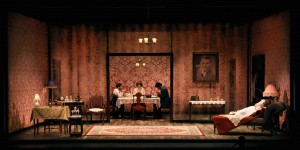

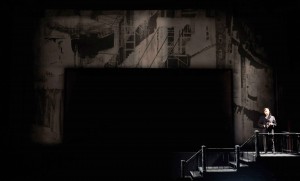
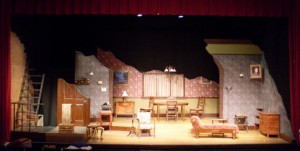
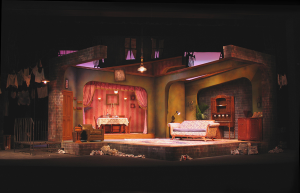
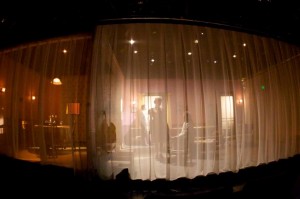
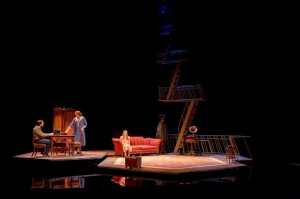
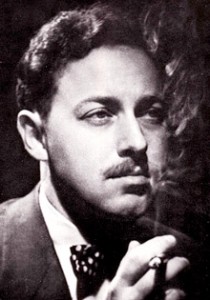
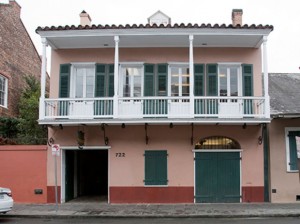 Williams famously quipped, “America has only three cities: New York, San Francisco, and New Orleans. Everywhere else is Cleveland.” He chose New Orleans as his home, and his work is infused with places and situations that could only have been spawned from the Crescent City’s mix of class, jazz, decadence, and alcohol. He moved into an apartment at 722 Toulouse Street and began working on the plays which would make him famous. The first was a flop. The second, the highly autobiographical The Glass Menagerie, premiered in 1945 to nearly universal acclaim. The character of Amanda Wingfield exerts the same kind of strong influence on her children Tom and Laura that Edwina Williams did on Tennessee, his sister Rose, and their brother Dakin. Fragile, crippled Laura Wingfield is based in no small part on Rose Williams, who possibly suffered from schizophrenia and who was subjected to a prefrontal lobotomy in 1943 at their mother’s choice.
Williams famously quipped, “America has only three cities: New York, San Francisco, and New Orleans. Everywhere else is Cleveland.” He chose New Orleans as his home, and his work is infused with places and situations that could only have been spawned from the Crescent City’s mix of class, jazz, decadence, and alcohol. He moved into an apartment at 722 Toulouse Street and began working on the plays which would make him famous. The first was a flop. The second, the highly autobiographical The Glass Menagerie, premiered in 1945 to nearly universal acclaim. The character of Amanda Wingfield exerts the same kind of strong influence on her children Tom and Laura that Edwina Williams did on Tennessee, his sister Rose, and their brother Dakin. Fragile, crippled Laura Wingfield is based in no small part on Rose Williams, who possibly suffered from schizophrenia and who was subjected to a prefrontal lobotomy in 1943 at their mother’s choice.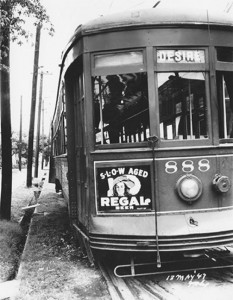
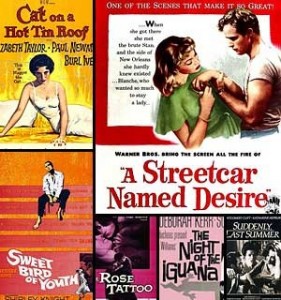 Several of Williams’ plays, many featuring clashes of culture and class, were produced and filmed in the years to following. Summer and Smoke and The Rose Tattoo received mixed reviews, but 1955’s Cat on a Hot Tin Roof (famous for Elizabeth Taylor’s slinking about in a silk slip—and not much else—in an unsuccessful attempt to engage her husband Brick’s, played by Paul Newman, attention), won another Drama Critics Circle Award and a second Pulitzer Prize. Later plays included Suddenly Last Summer, Sweet Bird of Youth, and The Night of the Iguana. As Ethan Mordden explains in The Fireside Companion to the Theatre (New York: Fireside, 1988), “His arena is the south, his genre is the cross section of personal relationships, and his archetypes are the somewhat cultured (but inbred and shy) gentlewoman and the brutish male who shatters her flimsy pretenses: in essence, Blanche DuBois and Stanley Kowalski of A Streetcar Named Desire, but, in variation, the Daughter and the Gentleman Caller of The Glass Menagerie, she terminally unsensual and he more breezy than brutish…Almost always, however, Williams deals with the confrontation of the dreamer and realist, his sympathies lying with the dreamer but the victory, in the end, always going to the realist. Thus…the Gentleman Caller does not, as was hoped, stay on to comfort the Daughter…”
Several of Williams’ plays, many featuring clashes of culture and class, were produced and filmed in the years to following. Summer and Smoke and The Rose Tattoo received mixed reviews, but 1955’s Cat on a Hot Tin Roof (famous for Elizabeth Taylor’s slinking about in a silk slip—and not much else—in an unsuccessful attempt to engage her husband Brick’s, played by Paul Newman, attention), won another Drama Critics Circle Award and a second Pulitzer Prize. Later plays included Suddenly Last Summer, Sweet Bird of Youth, and The Night of the Iguana. As Ethan Mordden explains in The Fireside Companion to the Theatre (New York: Fireside, 1988), “His arena is the south, his genre is the cross section of personal relationships, and his archetypes are the somewhat cultured (but inbred and shy) gentlewoman and the brutish male who shatters her flimsy pretenses: in essence, Blanche DuBois and Stanley Kowalski of A Streetcar Named Desire, but, in variation, the Daughter and the Gentleman Caller of The Glass Menagerie, she terminally unsensual and he more breezy than brutish…Almost always, however, Williams deals with the confrontation of the dreamer and realist, his sympathies lying with the dreamer but the victory, in the end, always going to the realist. Thus…the Gentleman Caller does not, as was hoped, stay on to comfort the Daughter…”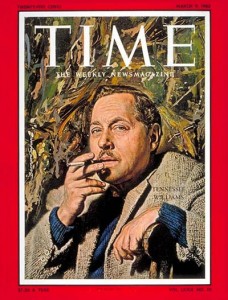
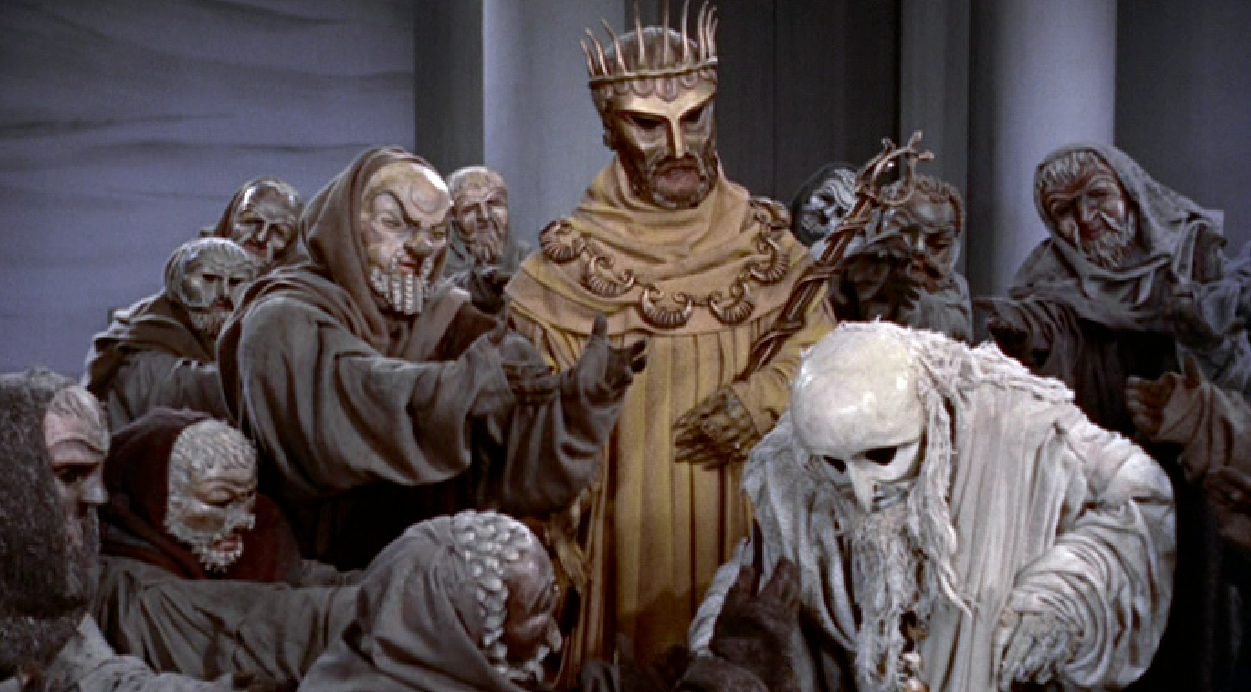
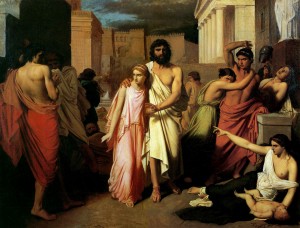
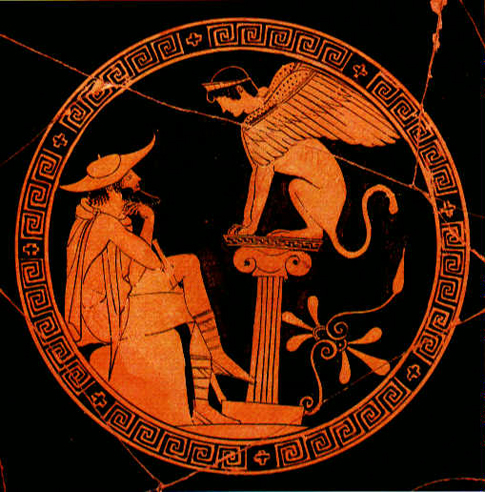 Another motif—blindness versus sight—is emphasized in poetic images and in various overt comparisons. A contrast is repeatedly drawn between the physical power of sight and the inner sight of understanding. For example, Tiresias, though blind, can see the truth which escapes Oedipus, while Oedipus, who has penetrated the riddle of the Sphinx, cannot solve the puzzle of his own life. When it is revealed to him, he blinds himself in an act of retribution.
Another motif—blindness versus sight—is emphasized in poetic images and in various overt comparisons. A contrast is repeatedly drawn between the physical power of sight and the inner sight of understanding. For example, Tiresias, though blind, can see the truth which escapes Oedipus, while Oedipus, who has penetrated the riddle of the Sphinx, cannot solve the puzzle of his own life. When it is revealed to him, he blinds himself in an act of retribution.
 Oscar Wilde, the Irish playwright who became the darling of British high society, is probably the best-known and most-quoted satirist of the late 19th century. Born in Dublin, Ireland in 1864, Wilde became a well-known lecturer, essayist, and playwright who enjoyed near-universal popularity until the shocking trial that ended his literary career and, not long after, his life.
Oscar Wilde, the Irish playwright who became the darling of British high society, is probably the best-known and most-quoted satirist of the late 19th century. Born in Dublin, Ireland in 1864, Wilde became a well-known lecturer, essayist, and playwright who enjoyed near-universal popularity until the shocking trial that ended his literary career and, not long after, his life. The next year, Wilde’s first play, Lady Windermere’s Fan, made its debut to great acclaim. Playwriting became Wilde’s preferred literary style. Lady Windermere’s Fan was followed in short order by A Woman of No Importance in 1893 and both An Ideal Husband and his most famous play, The Importance of Being Earnest in 1895. Each of these works skewered the pretensions of British high society through clever wordplay and Wilde’s satirical wit.
The next year, Wilde’s first play, Lady Windermere’s Fan, made its debut to great acclaim. Playwriting became Wilde’s preferred literary style. Lady Windermere’s Fan was followed in short order by A Woman of No Importance in 1893 and both An Ideal Husband and his most famous play, The Importance of Being Earnest in 1895. Each of these works skewered the pretensions of British high society through clever wordplay and Wilde’s satirical wit. 
 Norwegian-born Henrik Ibsen’s classic play about the struggle between independence and security still resonates with readers and audience members today. Often hailed as an early feminist work, the story of Nora and Torvald rises above simple gender issues to ask the bigger question: To what extent have we sacrificed our selves for the sake of social customs and to protect what we think is love? Nora’s struggle and ultimate realizations about her life invite all of us to examine our own lives and find the many ways we have made ourselves dolls and playthings in the hands of forces we believe to be beyond our control.
Norwegian-born Henrik Ibsen’s classic play about the struggle between independence and security still resonates with readers and audience members today. Often hailed as an early feminist work, the story of Nora and Torvald rises above simple gender issues to ask the bigger question: To what extent have we sacrificed our selves for the sake of social customs and to protect what we think is love? Nora’s struggle and ultimate realizations about her life invite all of us to examine our own lives and find the many ways we have made ourselves dolls and playthings in the hands of forces we believe to be beyond our control.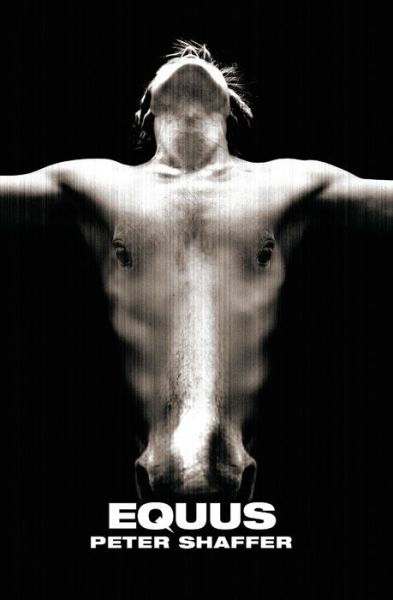 An explosive play that took critics and audiences by storm, Equus is Peter Shaffer’s exploration of the way modern society has destroyed our ability to feel passion. Alan Strang is a disturbed youth whose dangerous obsession with horses leads him to commit an unspeakable act of violence. As psychiatrist Martin Dysart struggles to understand the motivation for Alan’s brutality, he is increasingly drawn into Alan’s web and eventually forced to question his own sanity. Equus is a timeless classic and a cornerstone of contemporary drama that delves into the darkest recesses of human existence.
An explosive play that took critics and audiences by storm, Equus is Peter Shaffer’s exploration of the way modern society has destroyed our ability to feel passion. Alan Strang is a disturbed youth whose dangerous obsession with horses leads him to commit an unspeakable act of violence. As psychiatrist Martin Dysart struggles to understand the motivation for Alan’s brutality, he is increasingly drawn into Alan’s web and eventually forced to question his own sanity. Equus is a timeless classic and a cornerstone of contemporary drama that delves into the darkest recesses of human existence. From August Wilson, author of the ten-part “Pittsburgh Cycle” of plays dramatizing the African-American experience in the twentieth century, comes this powerful, stunning work that won the 1987 Tony Award for Best Play and the Pulitzer Prize. The protagonist of Fences, Troy Maxson, is a strong man, a hard man. He has had to be to survive. Troy has gone through life in an America where to be proud and black is to face pressures that could crush a man, body and soul. But the 1950s are yielding to the new spirit of liberation in the 1960s, a spirit that is changing the world Troy has learned to deal with the only way he can, a spirit that is making him a stranger, angry and afraid, in a world he never knew and to a wife and son he understands less and less.
From August Wilson, author of the ten-part “Pittsburgh Cycle” of plays dramatizing the African-American experience in the twentieth century, comes this powerful, stunning work that won the 1987 Tony Award for Best Play and the Pulitzer Prize. The protagonist of Fences, Troy Maxson, is a strong man, a hard man. He has had to be to survive. Troy has gone through life in an America where to be proud and black is to face pressures that could crush a man, body and soul. But the 1950s are yielding to the new spirit of liberation in the 1960s, a spirit that is changing the world Troy has learned to deal with the only way he can, a spirit that is making him a stranger, angry and afraid, in a world he never knew and to a wife and son he understands less and less.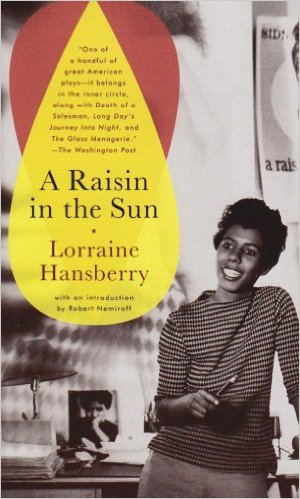 Set on Chicago’s South Side, the plot revolves around the divergent dreams and conflicts within three generations of the Younger family: son Walter Lee, his wife Ruth, his sister Beneatha, his son Travis and matriarch Lena, called Mama. When her deceased husband’s insurance money comes through, Mama dreams of moving to a new home and a better neighborhood in Chicago. Walter Lee, a chauffeur, has other plans, however: buying a liquor store and being his own man. Beneatha dreams of medical school. The tensions and prejudice they face form this seminal American drama. Sacrifice, trust and love among the Younger family and their heroic struggle to retain dignity in a harsh and changing world is a searing and timeless document of hope and inspiration.
Set on Chicago’s South Side, the plot revolves around the divergent dreams and conflicts within three generations of the Younger family: son Walter Lee, his wife Ruth, his sister Beneatha, his son Travis and matriarch Lena, called Mama. When her deceased husband’s insurance money comes through, Mama dreams of moving to a new home and a better neighborhood in Chicago. Walter Lee, a chauffeur, has other plans, however: buying a liquor store and being his own man. Beneatha dreams of medical school. The tensions and prejudice they face form this seminal American drama. Sacrifice, trust and love among the Younger family and their heroic struggle to retain dignity in a harsh and changing world is a searing and timeless document of hope and inspiration.